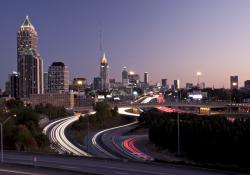The Thai government is expanding its current transportation systems with plans for 55 transportation projects worth US$72 billion which are expected to be completed by 2020. Of the US$72 billion, 64 percent will be spent on 31 rail projects, 24 per cent on 13 road projects, 7 per cent for seven water transportation projects, and 4.75 per cent is for four air transportation projects.
These projects are designed to make Thailand a crossroads for the ASEAN logistics network, enabling cities in the region to benefit from the improved transportation linkage between Thailand and its neighbours and between ASEAN members, reducing logistics costs and promoting tourism within the region.
The road links are expected to boost border trade, of which for the first three quarters of 2012 were valued at US$ 22.7 billion, while new investments in rail projects are designed to reduce logistic costs and minimise transportation time.
The Thai government will also be issuing tenders for four high speed train routes, which it says will help reduce commuters’ travel time, lower the cost of transporting goods, and improve the environment by reducing pollution and energy consumption. In Bangkok, where new roads cannot be built, electric train routes will be expanded from the current 40 kilometres to 468.8 kilometres.
The government is planning to finance the projects through revenue from state enterprises, fifty per cent through government revenue, 32 per cent through state owned enterprises and loans, and eighteen per cent through public and private investment. Thailand’s minister of transport, Chadchart Sittipunt wants to make this national transportation expansion project a national agenda and turn it into contingency plan which will be continued by successive governments.
The Thailand Board of Investment (BOI) is aware of the importance of expanding Thailand transportation infrastructure and its impact on the development of Thailand, and has pledged to support logistic and infrastructure investment project by offering tax incentives and other benefits for projects involving transportation infrastructure.
These projects are designed to make Thailand a crossroads for the ASEAN logistics network, enabling cities in the region to benefit from the improved transportation linkage between Thailand and its neighbours and between ASEAN members, reducing logistics costs and promoting tourism within the region.
The road links are expected to boost border trade, of which for the first three quarters of 2012 were valued at US$ 22.7 billion, while new investments in rail projects are designed to reduce logistic costs and minimise transportation time.
The Thai government will also be issuing tenders for four high speed train routes, which it says will help reduce commuters’ travel time, lower the cost of transporting goods, and improve the environment by reducing pollution and energy consumption. In Bangkok, where new roads cannot be built, electric train routes will be expanded from the current 40 kilometres to 468.8 kilometres.
The government is planning to finance the projects through revenue from state enterprises, fifty per cent through government revenue, 32 per cent through state owned enterprises and loans, and eighteen per cent through public and private investment. Thailand’s minister of transport, Chadchart Sittipunt wants to make this national transportation expansion project a national agenda and turn it into contingency plan which will be continued by successive governments.
The Thailand Board of Investment (BOI) is aware of the importance of expanding Thailand transportation infrastructure and its impact on the development of Thailand, and has pledged to support logistic and infrastructure investment project by offering tax incentives and other benefits for projects involving transportation infrastructure.











